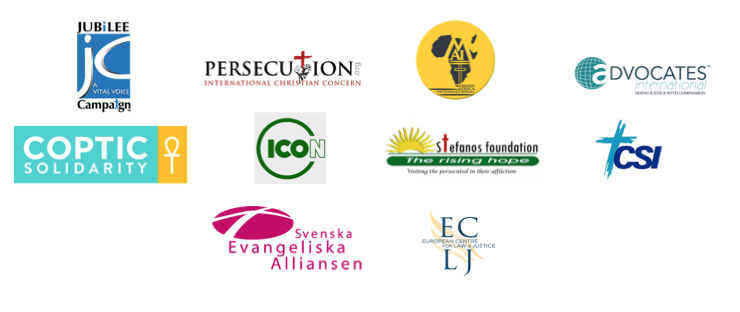As violence and attacks in the Northeast of Nigeria and the Middle Belt on rural communities continues, Jubilee Campaign et. al released two rejoinders to respond to Nigeria’s critique of the two independent international reports that addressed the violence. The rejoinders are to Nigeria’s response the UN Special Rapporteur on extrajudicial, summary or arbitrary executions, Agnes Callamard’s, country visit statement on Nigeria and the UK All-Party Parliamentary Group (UK APPG) for International Freedom of Religion or Belief, “Nigeria: Genocide Loading?” report.
Read more:
It has been one year since the UN Special Rapporteur on extrajudicial, summary or arbitrary executions, Agnes Callamard, visited Nigeria to investigate alleged violations committed by State security agencies and by non-State actors, particularly in the North East, Middle Belt and South of the country, as well as review actions taken by the State to hold perpetrators accountable for their crimes. The Rapporteur spoke with several state government representatives, civil society and survivors, eye witnesses and family members whose relatives have been brutally killed. At the end of her visit she shared her findings which expressed grave concern regarding the increased numbers of attacks and killings over the last five years, the increased insecurity, widespread failure to investigate and hold perpetrators to account, high levels of resentment and grievances within and between communities and toxic ethno-religious narratives and “extremist” ideologies – characterised by dehumanization of the “others”, concluding that the Federal authorities and the international partners are, “presiding over an injustice-pressure cooker.”
Nigeria however, criticised the report saying it only “scratches the surface …. then ends up blaming the government under the able leadership of President Muhammadu Buhari,” and essentially called it untruthful.
The rejoinder elaborates the Special Rapporteur’s due diligence and counters the government’s claim that the report did not, “point out country-wide patterns of violence across the Nigeria.” The NGO rejoinder also shows how the number of attacks continue to increase, including the mention of the recent killings in Kaduna in May 2020. The rejoinder also meets the Buhari administration’s insistence that the intra-ethnic conflicts and cattle rustling are the key elements of the farmer-herder conflicts, “if the violence perpetrated against these communities is really about cattle rustling why would women, children, and the unborn be targeted for revenge?” This reality does not fit President Buhari’s critique of the Special Rapporteur’s report nor the justifications given for the attacks against the primarily Christian farming communities in Nigeria.
“How is it possible or prudent to admit that the attackers and victims are from distinctly different religious and ethnic and go to say that religion plays no part in the violence.”
– Rejoinder UK APPG REPORT
In regards to the UK APPG report the Nigerian government made a similar response, downplaying the severity of the attacks against Christians that have taken place. The rejoinder counters the government statement that violence and the terrorist capacity has, “been largely reduced,” showing that from 2010-2014 Fulani militant attacks were around 615 but as of 2015-2020 the militant attacks have doubled to around 1 300 incidents.
The Nigerian government in the rejoinder to the parliamentary groups also invited the UK APPG to come and see for themselves, “the work that is going on to promote these fundamental rights of our citizens,” in Nigeria. Saying they, “ are always willing to work with those, both within and without Nigeria, with a concern for the rights to freedom of thought, conscience and religion.” This statement is disingenuous as the Nigerian government discredited the Special Rapporteur’s findings despite inviting her and meeting with her in the country. In addition, the Nigerian government has also arrested and harassed human rights journalists such as Omoyele Sowore, in a time when the need for independent and reliable and objective information is greater than ever.
The rejoinders conclude that the Nigerian government needs to understand the concern raised in the reports and take the necessary steps to address them by:
- Hearing the victims and survivors of attacks
- Acknowledging the extent of the violence
- Allowing an independent investigative body to monitor the situation
- Allowing domestic and international reporting on human rights and religious freedom violations.
- Protecting journalists’ from arbitrary detentions
- Providing aid for the victims of Boko Haram and Fulani militant attacks
- Rebuilding homes, churches and others buildings that have been burned down
- Respecting the rule of law

